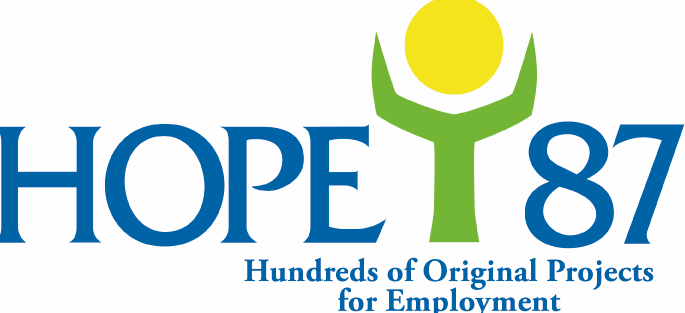Remarks by H.E. Mrs. Vivian N.R. Okeke at the Panel Discussion on Investing in Humanity, Humanitarian Congress Vienna, 29 March 2019
1
On the auspicious occasion of the Humanitarian Congress Vienna, I am pleased to participate in this important panel discussion, Investing in Humanity. I thank the organisers for inviting me to participate in this all-important discussion on the future of humanitarian aid.
I also thank the keynote speaker, Christina Bennett, Head, Humanitarian Policy Group of the Overseas Development Institute for her very insightful and clear address steering this panel.
I must state that I am particularly encouraged that the title of the panel emphasizes one key pillar of the 5-point plan from the “Agenda for Humanity”. For me, this key pillar, Investing in Humanity, gives a clear direction for what humanitarian aid should be. Whereas humanitarian aid could be merely about a short-term doling out of relief materials to those in dire need, investing goes a step further, brings a futuristic and sustainable perspective to the assistance given.
Based on the themes identified in the UN Secretary-General’s Agenda for Humanity which were also agreed to in the World Humanitarian Summit of 2016, it is evident that the long-standing patterns of handing out humanitarian aid have been found to be defective in many quarters. This informed the decision of the WHS to prioritize collective outcomes, acting upon our shared vision for humanity.
Investing in Humanity is based on the important principles of: Investing in Local Capacities to develop their ability to prevent, respond to and recover from crisis;
2
Investing according to Risk, in order to build community resilience against crisis; Investing in Stability so as to ensure a focus on prevention; shift from funding to financing with an emphasis on the long-term availability of resources; and Diversifying Resources from a multiplicity of donors.
I also believe that beyond this, we can invest in humanity by adding value to the environment and/or the individuals in the environment. This could be through political action, but also, through sharing time, equipment, educational resources, or by technology transfer and exchange of knowledge.
On my part, I will be bringing an African perspective to the discussions, citing the experience of my country Nigeria with a large-scale humanitarian crisis for nearly a decade now. The lessons learned through such experiences have proved very useful to ensuring that we are able to give an informed opinion on what works in the humanitarian aid regime.
As many of you will know, Nigeria has been grappling with the effects of the Boko Haram insurgency in its North-Eastern region for nearly a decade now. The massive humanitarian crisis in this region was brought about primarily by forced displacement of people to the surrounding towns in Niger, Chad and Cameroon.
In addition to the Boko Haram Crisis, Nigeria has also recently been plagued by communal clashes between farmers and herders, leading to the destruction of farmlands and livelihoods as well as displacement of people in communities within the middle-belt region of the country.
3
In the face of these human security threats, the government of Nigeria responded by a multi-dimensional and multi-stakeholder approach that strengthened the country’s security architecture and heightened social investment programmes.
Immediately following the relative return to peace and stability in the affected areas and communities, there have been massive investment in rebuilding of schools, healthcare centres, houses, as well as introduction of skills acquisition centres built with the help of many development partners.
I must mention that we remain grateful to all the governments, development partners and international NGOs who supported and continue to support Nigeria’s efforts with food and non-food items including clothing and life-saving medication to tackle the immediate effects of the displacement and humanitarian crisis.
The administration of President Muhammadu Buhari also created incentives which apply nationwide such as the Home-grown School Feeding Programme which encouraged children to return and stay in schools and Conditional Cash Transfers to the poorest of the poor. There were also attractive schemes such as FarmerMoni, TraderMoni, N-Power Programme, Anchor-Borrowers Programme, Presidential Fertilizer Initiative, which have become popular by their names among Nigerians across the country. These programmes were vigorously undertaken to stimulate economic growth by incentivizing semi-skilled and skilled entrepreneurs to get to work.
As a result of this focus on the bigger security and economic picture and building resilience at the very grassroot level, we can say that Nigeria is gradually recovering from the major setbacks with peace being returned to the affected places. The government continues to tackle the underlying causes of insecurity and, in close collaboration with development partners, continues to embark on massive rehabilitation programmes to sustain the gains made.
4
In addition, since the availability of youths to prosecute the Boko Haram insurgency has been linked to loss of livelihoods following the drying up of the Lake Chad, the Nigerian government is spearheading efforts at recharging the Lake Chad too ensure that livelihoods or the lake-side dwellers are restored and to build their resilience against crisis.
Some of the lessons learned from Nigeria’s experience are that:
i) there is a close linkage between humanitarian aid and development aid. In my opinion, while the one is short term, the other is for the longer term and it is the long-term prospect that holds its advantage. However, development aid can lock developing nations into a cycle of never-ending aid dependence. Therefore:
ii) we know that any assistance is more meaningful and sustainable when it takes on board the beneficiaries and makes them partners in the design and implementation of the interventions.
iii) in order to ensure that the actual beneficiaries are helped in as sustainable a manner as possible, humanitarian and development aid from various quarters should be coordinated in partnership with the concerned governments, who often have the best access to the victims and the widest scope for intervention.
For Nigeria as well as for many countries and parts of the world affected by humanitarian crisis, the vision is to ensure that humanitarian aid moves steadily towards the real aim of investing in humanity, rather than handing out short-term aid as had been the case.
All development aid needs to be guided by the principles of local ownership and inclusivity. As enunciated in Aspiration 6 of the AU Agenda 2063: The Africa We
5
Want, long-term development should be people-driven, relying on the potential of the native people, especially its women and youth.
Partnerships are thus key, because, although solutions to local problems can only be sustained locally, the necessary capacity and resources to execute those solutions often lie in external hands.
Humanitarian aid will achieve much more sustainable gains if it could be tailored around capacity building and empowerment through education, skills training for the youth, provision of enabling environment for women, infrastructural development, etc. All these can only be brought about by partnership.
Investing in Humanity is really what all humanitarian assistance should be about, because a service done to one human being is indeed done to all of humanity, and an investment in one is an investment in all of humanity.


















